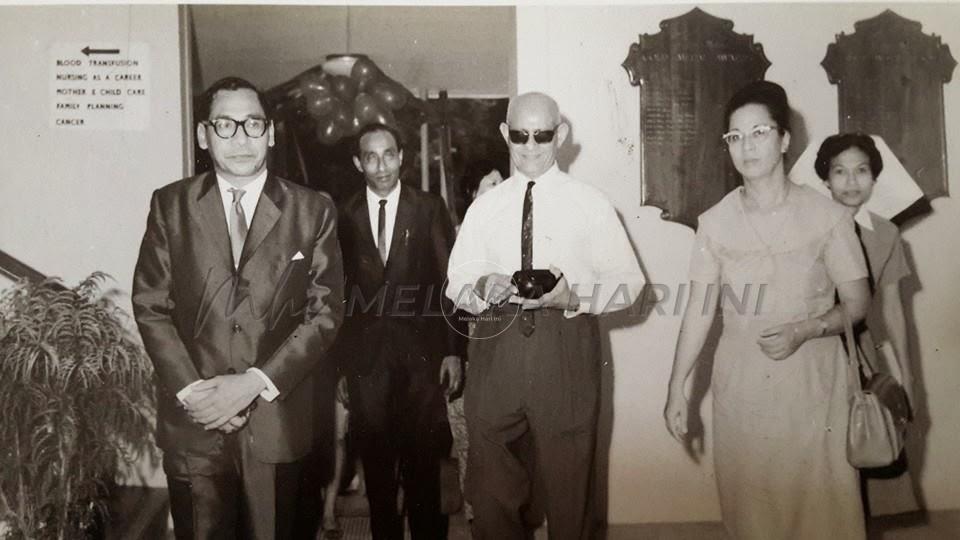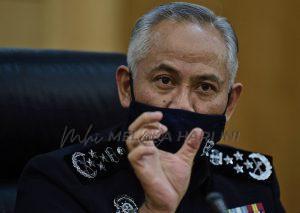
Penang Free School White Shirts: The National Consciousness of Datuk Dr. Abdul Wahab Ariff
THE Pulau Pinang or Tanjong Malays are usually not remembered for their nationalism. Some weeks ago, a state government agency contacted me asking for names of Pulau Pinang Malays who were involved in the nation’s independence movement. Many were members of the intelligentsia in the years before and after World War 2. Not many associate personalities like Syed Sheikh al-Hady, his years after al-Imam was spent in Pulau Pinang, advocating reform through journalism and literature via print (The Jelutong Press). There was also educator and reformer S.M. Zainul Abidin who led a solidarity movement of Malays from all over the peninsular, and whose name has replaced Jalan Jahudi.
Unnoticed in history is Ibrahim Mahmood, author and newspaper editor who helped drafted the Merdeka Proclamation; and Ahmad Murad Nasaruddin, writer, teacher and novelist, educated at the Sultan Idris Training College, known for such works as Nyawa Dihujung Pedang (1948). I gave some of those names.
At the back of my mind, after 64 years, the Pulau Pinang establishment only know of P. Ramlee! A dismal state of ambivalence. The narrative has been silent on the context of their lives and the times and society that they lived in. Another understated figure was Datuk Dr. Abdul Wahab Mohamed Ariff. I have to thank my late father Mohd. Noor Merican for imbuing that name in my consciousness in his continuing narrative on Tanjong.
But first, in my Penang Free School (PFS) years, I had known Dr. Abdul Wahab as one of the founders of the Gabungan Pelajar-Pelajar Melayu Semenanjung (GPMS/The Federation of Malay Students Union). Together with luminaries like Aminuddin Baki, Mohd. Noor Marahakim, Wan Suleiman Pawanteh and Siti Hasmah Mohamad Ali, he founded GPMS in August 1948. Abdul Wahab was the prime mover.
It was related by former journalist A Shukor Rahman in his book Flying Colors of Tanjung: The Story of Penang Malays (2010) of bright Malay students being left out of government scholarships in the 1930s. To the British, the Malays should only be educated up to the School Certificate level – enough to carry out subordinate roles. Too many highly educated and intellectual Malays would be dangerous.
The disappointment and frustration simmered among Malay students at the PFS. They united and formed the Malay Boy’s League or the ‘White Shirts’ as they preferred to be called outside school hours. The movement’s leader was Abdul Wahab Mohamed Ariff. He was granted permission from the acting headmaster, F. Cobb, who seemed to be sympathetic toward the students. According to Shukor, whom I had earlier collaborated for his Flying Colors book, the Malay students then had a forum to discuss their problems and grievances “in the true spirit of Malay nationalism.”
Some of the major issues in the 1930s were the total absence of any form of incentive, help or opportunity for tertiary education, the wasteful termination of their studies after passing out from Malay vernacular schools, and the almost total absence of female Malay students in English schools. The movement managed to influence Malay elders in Pulau Pinang to press for government scholarships for outstanding students of PFS.
The headmaster L.W.Arnold, on his return from home leave, expressed his concern. Europe in the 1920s and 1930s, saw Adolf Hitler’s ‘Brown Shirts’ (German Youth Movement), and the ‘Black Shirts’ of Benito Mussolini. To Arnold, Abdul Wahab’s ‘White shirt’ would suggest something similar. He disbanded the movement before the police (detective branch) took action. Shukor sees this as signalling the emergence of nationalism among the Malay students of PFS.
My late father introduced me to Dr. Abdul Wahab Ariff as his kinsman, and a brilliant son of Tanjong, who had won two scholarships to study medicine at the King Edward VII College of Medicine in Singapura. Abdul Wahab was born on 24 December 1919 (d. 2006) in Tanjong. He attended the Chowrasta Malay School (1925-29) and PFS (1930-37), obtaining Grade One in his Senior Cambridge Examination in 1937 and his School Certificate with honours in 1938. He had won the Penang Centenary Gold Medal for being first in his school.
In 1939, he was awarded the Tunku Syed Hussein Scholarship, and in the same year in May the Penang Kapitan Kling Mosque Scholarship. Dr. Abdul Wahab graduated with a Licentiate in Medicine and Surgery (LMS) in the Class of December 1949. According to medical biographer Dr. Faridah Abdul Rashid in her book Biography of the Early Malay Doctors: 1900 – 1957 (2012), he joined government service in 1950 holding several posts under the British Malayan, Malaysian, and Brunei governments. His stint in Perlis in the early 1950s saw him responsible for eradicating the gastro-enteritis epidemic in the state. He was appointed Chief Medical and Health Officer (CMHO) of Perlis (1953-1955).
Dr. Faridah Abdul Rashid, who is former professor of Biochemistry and Medical Information Technology at the School of Medical Sciences, Universiti Sains Malaysia, Kubang Kerian in Kelantan stated that Dr. Abdul Wahab was responsible for setting up the Snake Unit in Perlis, with a snake venom centre for the purpose. His wife Datin Intan had related that many were fatally bitten by snakes in Perlis during maghrib.
In 1955, Dr. Abdul Wahab was awarded the Queen’s Fellowship for postgraduate work in Public Health. He served as CMHO in Pulau Pinang in 1968, and Kuala Lumpur on 1970. He was Deputy Director-General of Health (1973-74) prior to his retirement from the service at the age of 55. Subsequently he was appointed as University Kebangsaan Malaysia’s (UKM) first Professor of Social and Preventive Medicine in 1975, becoming its acting vice-chancellor. He served as the second Dean of UKM’s Faculty of Medicine, retiring from the university in May 1978.
Langgani saluran Telegram kami untuk dapatkan berita-berita yang terkini.


